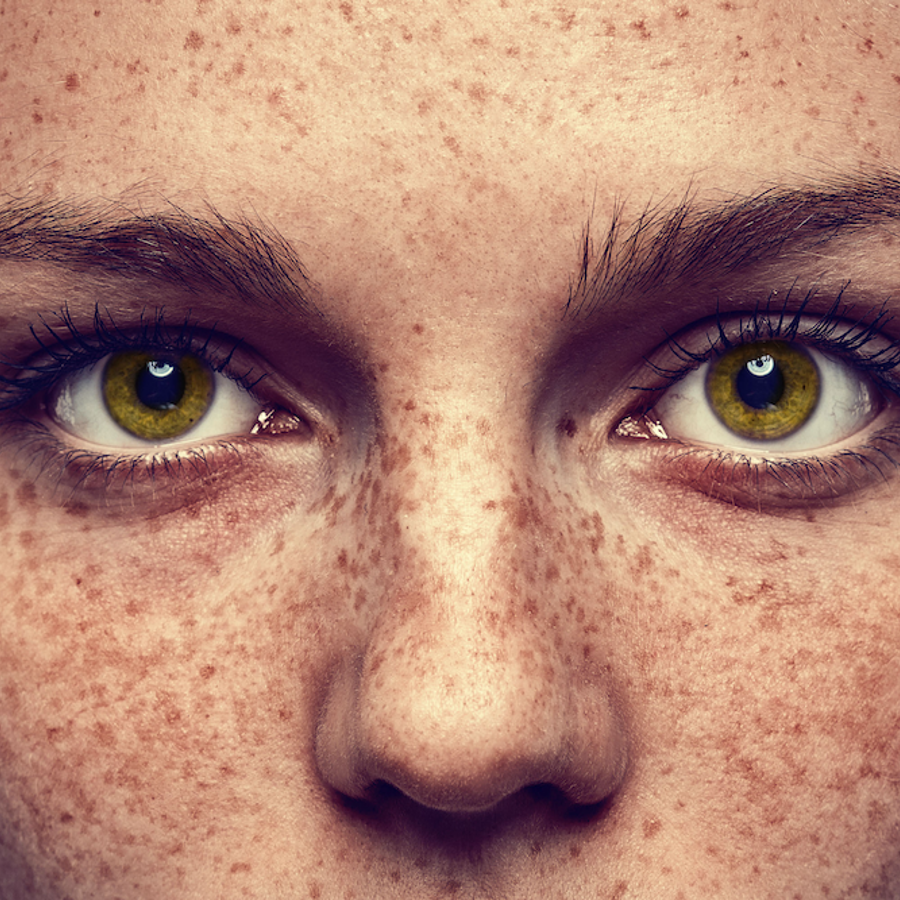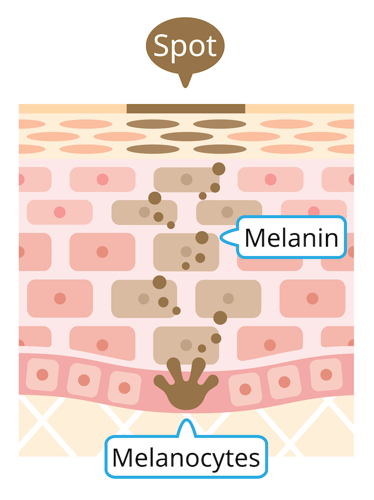
How can our daughter have freckles if neither parent does?
August 18, 2023

- Related Topics:
- Skin pigmentation,
- Freckles,
- Pigmentation traits
A mother from Massachusetts asks:
"Neither my husband or I have freckles, but our daughter does. How is this possible? I thought freckles were a dominant trait? How could she have them if we don't?"
You’re right that freckles can be inherited as a dominant trait. However, other causes do exist, and it’s possible one of those applies to your family. Read on to find out more!
What are freckles?
Skin, hair, and eyes get their color from a pigment called melanin. In people without freckles, the cells producing melanin are spread out evenly, resulting in a fairly uniform color. But if these cells are clustered in certain areas, they can make darker spots instead (freckles!).
Freckles often appear more prominent when one has been out in the sun. That’s because sunlight exposure leads to overall greater melanin production — melanin helps absorb sunlight, preventing many of its harmful effects!

Freckles and MC1R
An important study from 2001 of over 1,000 people found a clear relationship between freckles and a gene called MC1R.1 This gene plays an important role in creating melanin. Interestingly, MC1R is also associated with the presence of red hair — indeed, it’s no coincidence that red hair and freckles are often found together!
Freckles caused by MC1R are usually a dominant trait. That means that if a child has freckles, then at least one parent would as well. But this isn’t how all traits work.
To answer the original question, we need something which would allow a child to have freckles even if neither parent does. Fortunately, we now know some more mechanisms by which freckles can arise.

What are some other causes?
In general, the causes of traits like freckles can be pretty complex. It’s often the case that multiple genes contribute, which can muddy the waters between “dominant” and “recessive”. Often, it’s hard to predict exactly how a trait will be inherited. Therefore, I wanted to highlight some more genes which could potentially play into this effect.
For example, the genetic ancestry company 23andMe uses 34 different genetic regions to predict whether someone has freckles.6 It’s the combination of all these different regions (which includes MC1R!) that affects the chance of having freckles.
Another potentially important gene is Interferon Regulatory Factor 4 (IRF4), which is involved in producing melanin. In 2013, scientists identified a genetic change in IRF4 which results in lower melanin production and fewer freckles.2
Another possible gene is BNC2, which is involved in the process of skin color saturation. Certain changes in this gene have been speculated to affect freckling, likely due to altered communication between two different types of skin cells.3
Freckles can also happen as part of a more widespread condition or syndrome. For example, the gene OCA2 is associated with a condition called oculocutaneous albinism. This condition produces an extreme lack of pigmentation, causing white hair and very light skin. Freckles are also common. Oculocutaneous albinism is a known recessive trait.4,5
Ultimately, there’s not a lot of information right now on what causes freckling. We are still learning every day about new causes or mechanisms behind traits like this. It’s very possible some other important factors have not been found yet.
Wrapping it all up
The genetic causes of traits like freckles are very complex. Any of the genes mentioned above might be the driving force. It’s also likely that multiple genetic regions are involved, leading to combined effects. Overall, it’s absolutely possible for a child to have freckles even if neither parent does. In fact, there are probably a variety of ways it could happen.

Author: Aman Patel
When this article was published in 2023, Aman was a PhD candidate in the Department of Computer Science, developing Artificial Intelligence approaches to study evolution and gene regulation as part of Anshul Kundaje’s laboratory. He wrote this answer while participating in the Stanford at the Tech program.
 Skip Navigation
Skip Navigation
